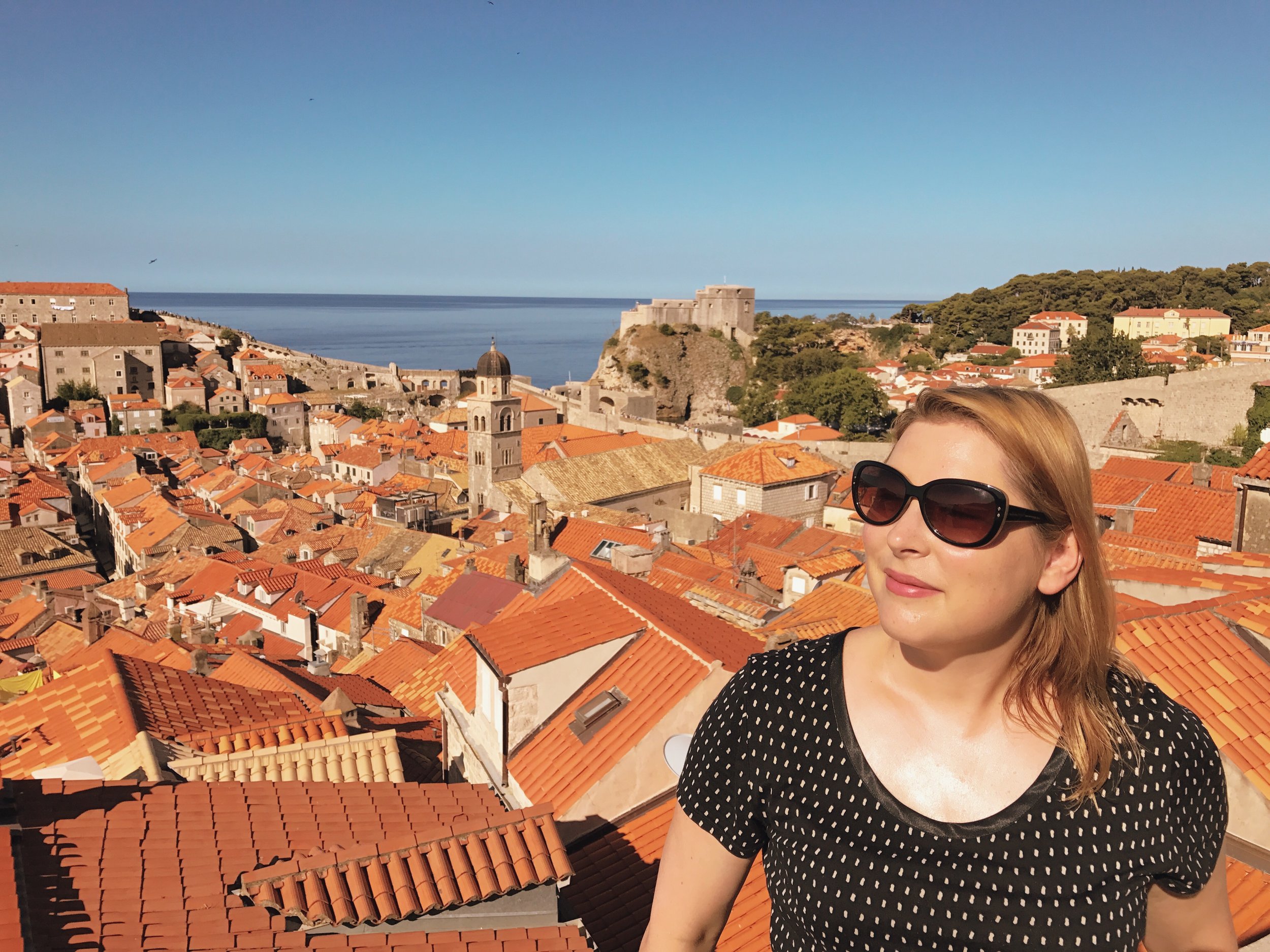Travel Writing: Launch Your Career with These 9 Tips
Get paid to travel? Yes, please. To get an edge on the competition, improve your photo skills and build that social media following.
Ever dream of being a travel writer? Who hasn’t?! My guest Nardia Plumridge actually made it happen. In addition to writing for global publications, including Lonely Planet, Nardia also penned a book — Lost in Florence — that is due out this spring. On the Postcard Academy podcast, Nardia shares how she broke into the travel writing biz and offers tips on how to get your own work published. (subscribe here for free).
Be a great writer
We’ll get this obvious one out of the way first. If you don’t have a lot of experience writing, start now. Set yourself a goal of writing a certain amount of words a day. Write reviews of places you go. Read the kind of articles you want to write.
Start small
Want to write for National Geographic? Start smaller. Way smaller. You usually need to build up a portfolio of clips from smaller publications before the major pubs will take a chance on you. Intern or volunteer at a local magazine or website and learn from experienced writers. Take on assignments they don’t have time for. If you don’t have time to be in an office, still offer to take on stories and pitch ideas.
Be fresh
“So much has been published already,” Nardia says. “Say with Italy, ‘Let’s do an article on the Cinque Terre,’ or something. There’s a million articles that have been done already.” Find a unique angle that will interest an editor.
Use facts and anecdotes
“It's good when you write stuff to find something a little bit unusual or interesting, especially to open. One of the things I found the most interesting when I first came [to Bangkok] years ago was how they have Buddha time.” Did you know that in Thailand it is the year 2562?
Pitch editors
Figure out what publication you want to work for and actually read that publication so you get a feel for their style and tone. If it’s a good fit, search for the travel or features editor on the masthead. Or google them or do a search on LinkedIn. A tool like Lusha can help you find the editor’s email address if you can’t find it on the publication’s website.
You should be able to pitch your idea in one line and, as mentioned, pitch a specific story, and not a general topic. Why is your story important — the pitch needs to convey this. Don’t go longer than three paragraphs and include your writing credentials and any personal experience you have regarding your story idea. Your article headline is your email subject line, but in the subject line, also include “Writer pitch: [INSERT YOUR HEADLINE].” Track all of this in a spreadsheet, including the date of your pitch and the response.
Build your online portfolio
If you don’t have any clips or writing degrees, share the best content from your blog. “‘Here’s my online portfolio’ That's how I would term it,” Nardia says. “You don't have to say whether it’s been published or not. And this showcases your style of writing, the quality of your work, the quality of your images.” Nardia actually got a book deal when the publisher discovered her passion project Lost in Florence.
Persist
Editors are busy and things slip. If you don’t hear from them, send a reminder in a week. If you still don’t hear from them, let it go and pitch something else in a few months. “Get ready for a lot of rejection,” Nardia says, “not because your ideas are bad or your writings bad, but it might just not fit the publication at that time if they've got special issues. Or maybe something they’ve done before.”
Improve your photography skills
We missed the glory days of publishing, when magazines would splash out cash on writers and photographers. These days they often want one person to do both jobs, so if you can take a good photo, you’ve got an edge. Double edge if you’ve got a social media following.
Meet deadlines
Don’t ask fo extensions for your work. Be professional and build your reputation as someone who is reliable to work with.
If you found this article useful, please share it, and subscribe to the Postcard Academy podcast. Each week, expats and adventurers share their insider travel tips on the best food, nightlife, and cultural experiences in the most interesting places around the globe. I’m your host, Sarah Mikutel, an American who's spent the last 8 years living in, and traveling around, Europe.




